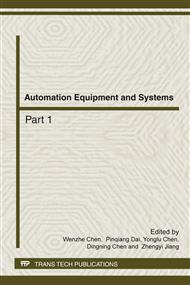p.2941
p.2951
p.2955
p.2959
p.2963
p.2970
p.2974
p.2978
p.2984
The Empirical Research of the Effect about Communication Trust and Commitment on Supply Chain Cooperation
Abstract:
A hypothesized model of the influence order and interrelation about three main measure factors (communication, trust and relationship commitment) on long term relationship-oriented was established from the formation of supply chain cooperative relationship. Structural equation model was used to verify the model. And relationship commitment was measured from three dimensions of income commitment, affective commitment and witching cost. With the questionnaire survey of supply, manufacture, distribution and retail companies, the empirical results show that during the formation process of supply chain cooperative relationships, cooperative enterprises start from communication, and then create the mutual trust, thus develop long term relationship by enterprises commitment. Communication and relationship commitment have a direct impact of long term relationship-oriented, while trust has an indirect effect on long term relationship-oriented. Trust has a significant effect on witching cost in relationship commitment, while witching cost has a significant effect on long term relationship-oriented.
Info:
Periodical:
Pages:
2963-2969
Citation:
Online since:
February 2012
Authors:
Price:
Сopyright:
© 2012 Trans Tech Publications Ltd. All Rights Reserved
Share:
Citation:


